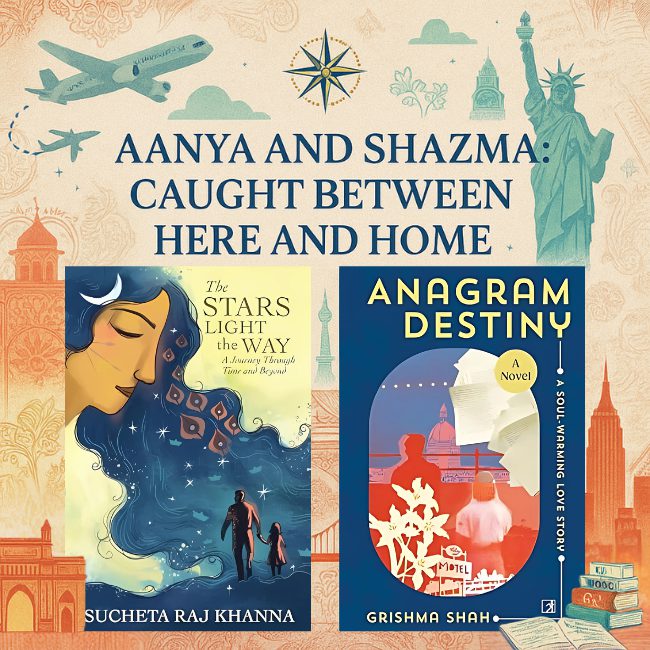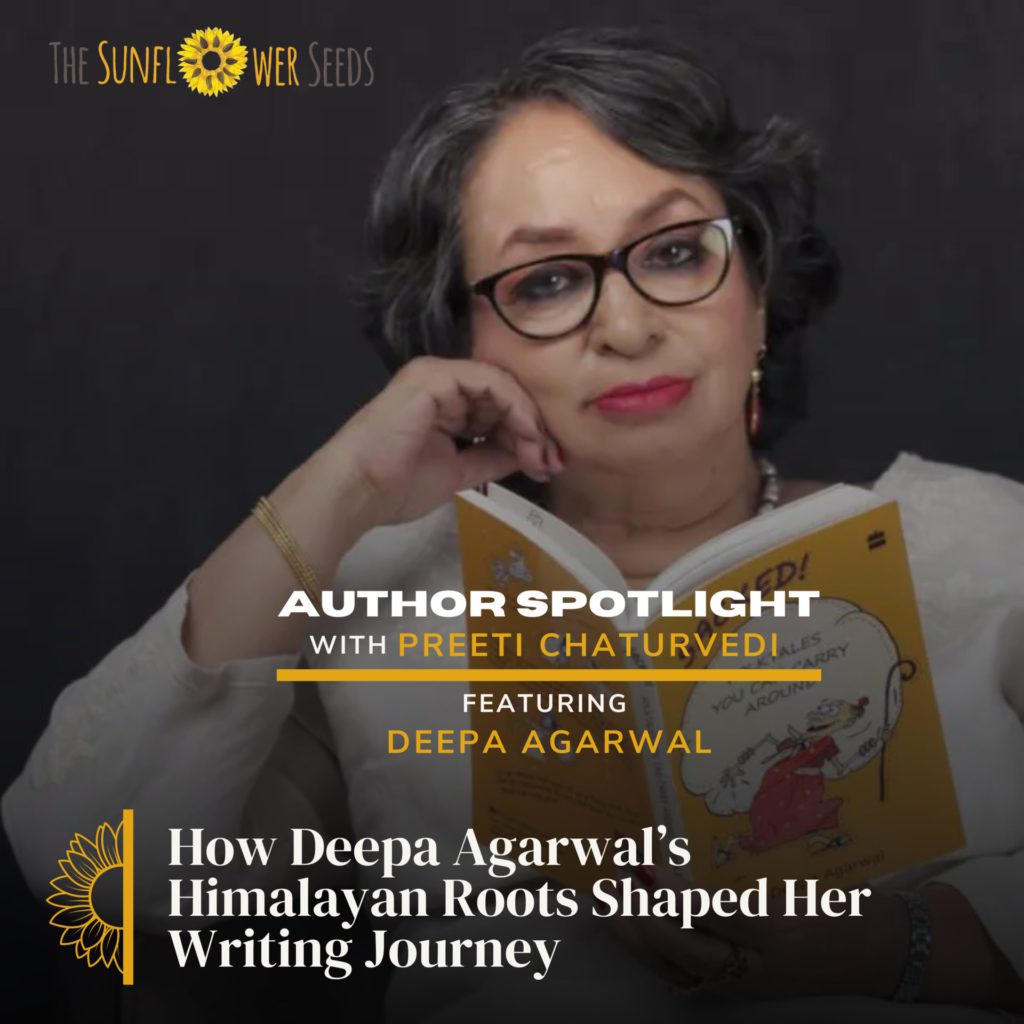Aanya and Shazma: Caught Between Here and Home

Have you ever felt torn between two lives—one that’s familiar and safe, and another that’s uncertain but full of possibility? That’s the powerful thread that connects Aanya from Anagram Destiny by Grishma Shah and Shazma from The Stars Light the Way by Sucheta Raj Khanna. These two Indian women, from different stories and different worlds, face the same timeless question: Where do I truly belong?
Shazma, living in Singapore with her husband, enjoys a steady and comfortable life. Everything about her present is clean, structured, and known. Singapore has given her routine, a sense of order, and a space to grow. But then comes a life-changing opportunity: a prestigious job in the Indian Parliament. It’s a dream come true, yet it threatens to pull her away from the world she has carefully built. To take the job would mean returning to India—her childhood home, rich with memories, culture, and emotions she’s tried to leave in the past. It would mean embracing her roots, but also letting go of her routine.
Meanwhile, Aanya’s journey flows in the opposite direction. Born and raised in the United States, she moves to India to lead business development at a tech company in Gurgaon. She, too, is chasing success—but she’s also escaping something: grief, heartbreak, and the pressure of a past that weighs heavily on her. “She could swim and certainly survive, but… home?” Aanya wonders, as she tries to fit into the land her ancestors once called home. India is supposed to feel familiar, yet she often feels like a stranger in it.
What connects both women is this feeling of being in between. Neither Aanya nor Shazma fully belongs in one place. They are constantly navigating dual identities—one shaped by tradition, the other by modern ambition. In India, Aanya is seen as American. In Singapore, Shazma is always a little Indian. Their surroundings challenge them to adapt, but they also force them to reflect.
For Shazma, mysterious signs from her late father begin to appear just as she’s struggling with her decision. These signs act as gentle nudges toward self-discovery, reminding her that the past isn’t something to run from—it’s something to carry forward. “It feels as if her father is guiding her,” the story says, urging her to listen closely to her inner voice.
Aanya, too, leans on memory and emotional symbols to find strength. She often touches the diamond solitaire her father gave her—a reminder of love, courage, and her own worth. “You shine brighter than a hundred diamonds,” he once told her, a line she repeats to herself when the world feels too large and uncertain.
Both stories are gentle but powerful reminders that home isn’t always a place—it’s a feeling. It’s the people who ground us, the values that shape us, and the dreams that move us forward. Whether it’s Shazma choosing between her present and her past, or Aanya finding clarity in the chaos of a new city, both women are writing their own definitions of what it means to belong.
If you enjoy stories about cultural identity, tough decisions, and strong female leads, the lives of Aanya and Shazma will stay with you long after the final page.





